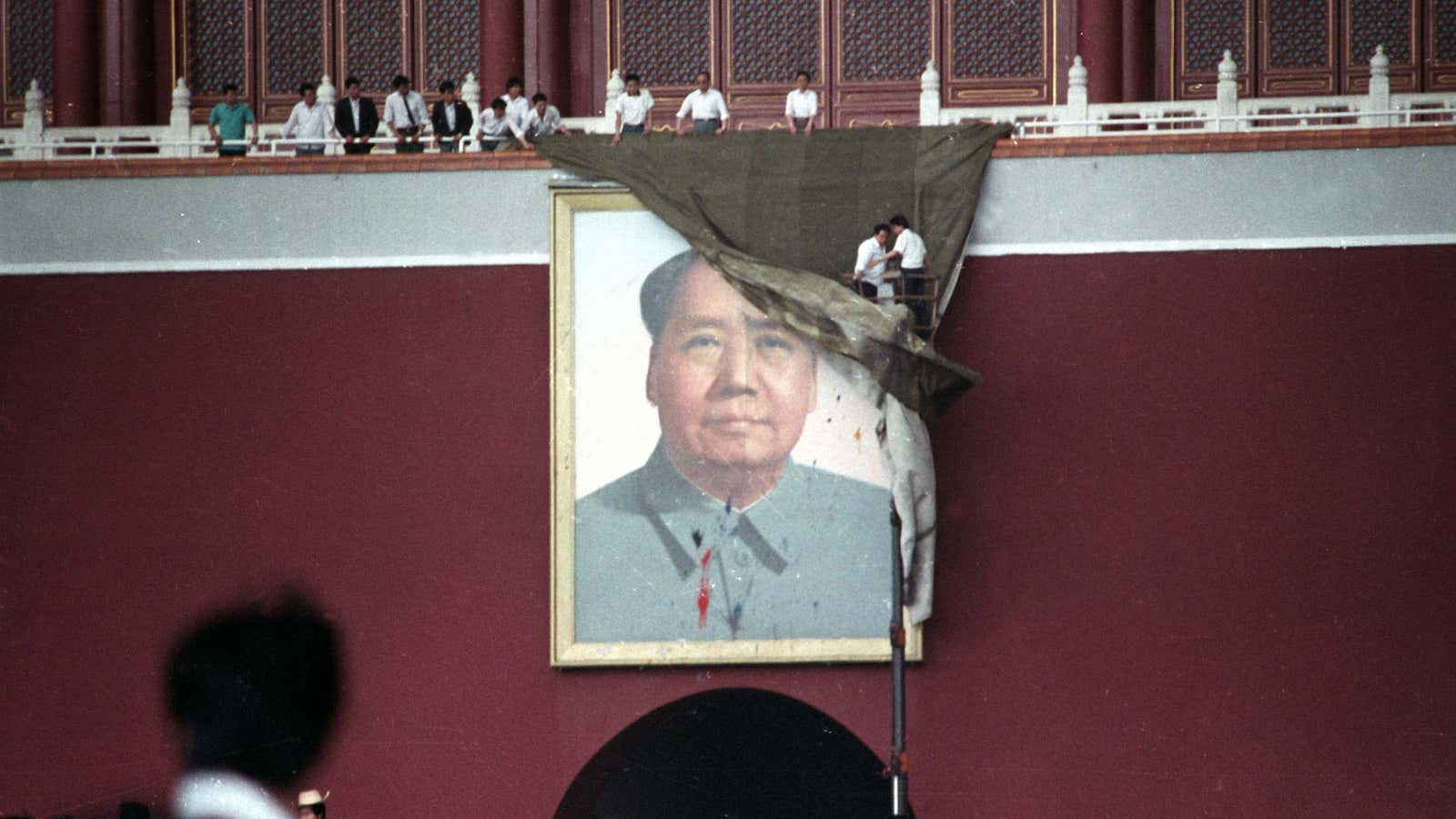Ahead of the 25th anniversary of the Chinese government’s violent crackdown on protesters in Tiananmen Square on June 4, a new veil of online censorship has been lowered onto the country. In addition to the dozens of activists that have been detained in order to ensure their silence during the contentious day, a slew of English and Chinese-language news sites and internet services—including Google—have been blocked.
Chinese president Xi Jinping “like his predecessors, is on futile mission to control discussions about Tiananmen and broader issues,” Human Rights Watch said last week. But contrary to what some activists might have hoped, the state-mandated erasure of the incident has been extremely effective. Only 15 out of 100 university students in Beijing recognize the iconic picture of “Tank Man” a demonstrator blocking the path of a line of tanks, according to The People’s Republic of Amnesia, a new book on the topic by NPR correspondent Louisa Lim.
“The education system and the vast apparatus that censors the Chinese media and Internet have done such a formidable job at eliminating references to the events of 1989 that many young people are unaware of what happened or have only a faint notion of what happened,” Danwei’s Jeremy Goldkorn, whose site monitors Chinese media, told AFP. “The result is that many young people who do not remember 1989 themselves would need an unusual degree of curiosity to look for information about what happened.”
Scouring the Chinese internet for references to June 4 has become an annual event for the government’s censors, but this year’s efforts have gone further than ever before.
All Google services in China, including gmail, are now being blocked on the mainland. That’s according to GreatFire.org, a nonprofit group that monitors censorship in the country. Google had previously been accessible through its Google.hk domain, as well as several other workarounds, but authorities have chosen the days leading up to the anniversary to tighten the screws—perhaps because they feared new encryption tools that enabled Google users to hide their search queries from the authorities.
“It is not clear that the block is a temporary measure around the anniversary or a permanent block,” GreatFire writes. “But because the block has lasted for 4 days, it’s more likely that Google will be severely disrupted and barely usable from now on.” (Google has not responded to queries from Quartz.)
As in previous years, even circuitous mentions of June 4 on social media—including the Chinese characters for six and four together, for the date of June 4, the search term ”four, open fire” or “25 years“— are being swiftly deleted by censors. China’s version of Wikipedia, Baike, has no entry for the entire year of 1989.
The end result is a Chinese student population that wasn’t even born when the Tiananmen protests took place, and wouldn’t even know to look for more information about them if they wanted to. When the AFP asked a 20-year-old student at Peking University about the events of June 4, his response was: “I don’t know what you are talking about.”
